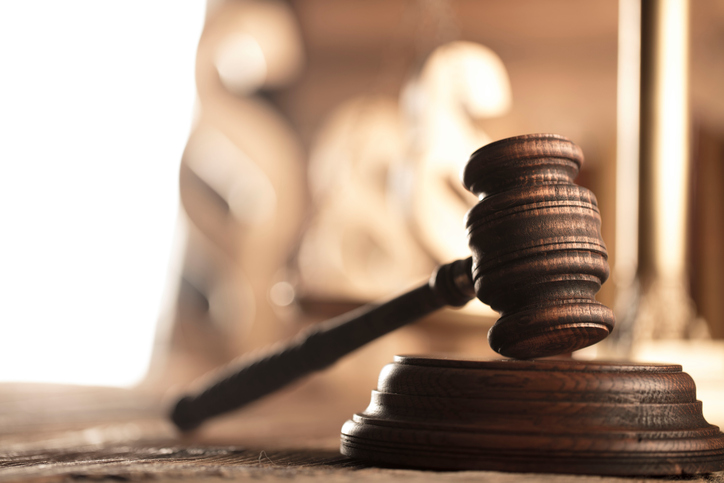Trump is not the only, nor the biggest, player in the game of influencing attorneys general. Singling him out for opprobrium is aiming at the tip rather than the iceberg.
One can hardly open a newspaper these days without encountering a controversy involving Donald Trump. Yet, there is a silver lining in such a depressing state of affairs: well-established practices that have traditionally flown under the radar are now being questioned: for example, donating money to finance the campaigns of state attorneys general who might investigate you, as spotlighted by the Wall Street Journal. The WSJ piece focuses on connecting the dots between which attorney generals Trump donated to and what pending decisions regarding Trump’s businesses these attorney generals touched. What the WSJ piece fails to do is provide context: situating Trump’s habit within the bigger picture of unholy coalitions between special interests and state attorneys general.
Trump is not the only, nor the biggest, player in the game of influencing attorneys general. Singling him out for opprobrium—for this particular habit—is aiming at the tip rather than the iceberg. So here are a couple of quick observations about the iceberg, why it got so big, and how to melt it without causing too much damage.
Attorneys general appeared on the radar of special interest groups in the 1990s. Back then the tobacco litigation changed the game: it showed that attorney general litigation can produce large revenues for states, fame and political cache for the attorneys general, hefty lawyer fees for plaintiff firms, and a huge risk for incumbent businesses. One could argue that attorneys general simply stepped into a void: the existing institutions in charge of enforcing regulations were either too weak or captured. Whatever the reasons for the rise in prominence of the new law enforcement institution, one result is undisputed: special interests on both sides of the aisle were now forming a line to lobby attorneys general.
A 2014 Pulitzer-winning exposé by the New York Times((See Eric Lipton, Lobbyists, Bearing Gifts, Pursue Attorney Generals, New York Times, Oct. 28, 2014; Eric Lipton, Energy Firms in Secretive Alliance with Attorneys General, New York Times, Dec. 6, 2014; Eric Lipton, Lawyers Create Big Payday by Coaxing Attorney Generals to Sue, New York Times, Dec. 18, 2014.)) fleshed out in great detail this relatively new special interests battlefield. On the one hand, business groups try to influence attorneys general to kill investigations before they get too big or to put their official letterhead behind the business groups’ claims. On the other hand, plaintiff bars prompt attorneys general to start investigations and then outsource the litigation to them, with all the problematic incentive structures that such activities create.((For discussions in the legal literature about the pros and cons of attorney general litigation see, e.g., Wendy E. Wagner, Rough Justice and the Attorney General Litigation, 33 Georgia Law Review 935 (1998); David A. Dana, Public Interest and Private Lawyers: Toward a Normative Evaluation of Parens Patriae Litigation by Contingency Fee, 51 DePaul Law Review 315 (2001).))
Seeing how everyone—plaintiffs and defendants, Democrats and Republicans—compete over influencing attorneys general, one may conclude that from a societal perspective the costs would actually not be that high. The competition between special interests will dissipate their rents, the argument goes. It may even reflect voters’ preferences to some extent. The problem with such an argument, as is often the case with rent-seeking activities, is that it misses the ex ante, broader effects.
For one, deep connections between special interests and attorneys general reduce public trust in the legal system, and erode the prospect of legal deterrence. Furthermore, they may even indirectly water down the prospect of discipline by market forces (reputational deterrence) or social norms. This is because such connections allow special interests to use public officials as validators of their claims, helping them win not just in the courtroom but also in the court of public opinion. In a previous ProMarket post I explained why, using the example of an energy company drafting a letter about how best to regulate fracking, which the state attorney general then signs as his (without acknowledging the source).
To be sure, there is no easy solution for special interest influence over attorneys general. Once attorneys general gained so much power, they were bound to be subjected to influence attempts by the interests they were impacting. We see the same story in different versions all the time, not just at the state level but also with law enforcers at the federal level. Take, for example, the case of whistleblower Eric Ben-Artzi, who tried to alert the SEC to shenanigans at Deutsche Bank. Ben-Artzi gave a talk at the Stigler Center last week, in which he detailed his frustration with the way that revolving doors between financial giants and federal regulators yield too-lax enforcement.
So perhaps the best way to read the WSJ piece is not as an invitation to shun Trump alone but rather as an invitation to start a more open and elaborate discussion on the effectiveness of enforcement by attorneys general, relative to other regulatory institutions.






